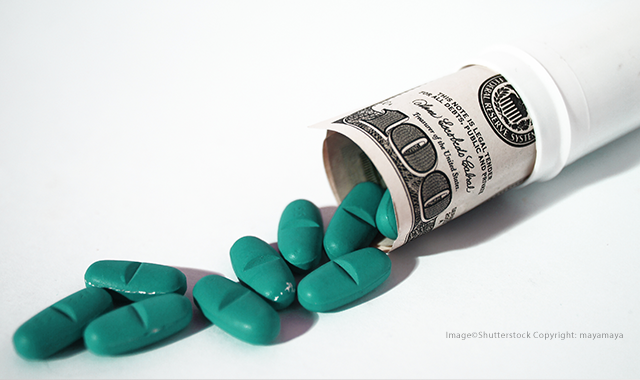- Safety & Recalls
- Regulatory Updates
- Drug Coverage
- COPD
- Cardiovascular
- Obstetrics-Gynecology & Women's Health
- Ophthalmology
- Clinical Pharmacology
- Pediatrics
- Urology
- Pharmacy
- Idiopathic Pulmonary Fibrosis
- Diabetes and Endocrinology
- Allergy, Immunology, and ENT
- Musculoskeletal/Rheumatology
- Respiratory
- Psychiatry and Behavioral Health
- Dermatology
- Oncology
[BLOG]: 5 reasons biosimilars must have distinguishable names
In this blog response to the July 13 article "5 reasons to keep biosimilar names the same," Louis Tharp, executive director or Global Healthy Living Foundation, lists 5 reasons biosimilars must have distinguishable names.
If you ask patients with severe chronic diseases, such as those with rheumatoid arthritis, cancer, or multiple sclerosis, what they believe is the most important factor in achieving a positive outcome for their condition or disease, the vast majority will say it’s the relationship they have with their physician and treatment team. Patients trust their physicians to recommend treatments and prescribe medications with a thorough understanding of how that regimen might affect them, while being vigilant to monitor for adverse reactions.
Related:5 reasons to keep biosimilar names the same
On July 13, patients, physicians and industry invited members of Congress to a briefing that addressed implementation of the Biologics Price Competition and Innovation Act (BPCIA), which was passed in 2010 as part of the Affordable Care Act, in light of FDA not providing final guidance on the approval of biosimilars and interchangeable biological products when it comes to naming, substitution, extrapolation, interchangeability, and labeling. The need for such guidance is urgent because chronic disease patients who benefit from biologics have reason to look forward to biosimilars coming to market as they may represent new treatment options with the added benefit of yielding cost savings.
We believe in biosimilars, and we also believe the technology exists to allocate unique names with no net cost increase. Besides this, there are 5 simple reasons why biosimilars must be given distinguishable names and made available only under transparent circumstances:




#1. Biosimilars are not a new kind of generic medication
Many stakeholders believe that biosimilars should follow the naming conventions that generics have with respect to their small molecule reference medicines, by using the same name. However, a biosimilar medicine is not the same as a generic. Rather, it is merely highly similar to the reference biologic. Because biologic medicines are very complex and very sensitive, they are nearly impossible to replicate. Plus, current manufacturers have proprietary processes. Every biosimilar will vary from the reference biologic and each other.
Related:New guidance on generic opioids, biosimilars labeling coming from the FDA



#2. To protect patient safety
Distinguishable names mean patients and physicians can clearly identify medications. For example, eventually, there may be several biosimilars that mimic one original biologic. If a patient experiences an adverse event, side effect, or change in condition, it is vital to be able to exactly track which medicine is being utilized.
Related:FDA issues biosimilar final guidance



#3. To minimize confusion.
Unique, distinguishable names are needed to ensure timely detection, assessment, and prevention of any adverse effects from a product, or even a batch of products. This is particularly important in the event of a drug recall where many patients might be affected concurrently.
Related:[BLOG]: Biosimilar confusion and insights



#4. To increase transparency
Once biosimilars are approved by FDA, it is up to the individual states to determine access. New laws are required to protect patients from substitution of a biosimilar for a prescribed biologic without appropriate notification of the patient and/or physician. This year alone, Utah, Georgia, Colorado, Washington, Louisiana, North Carolina and Texas passed legislation requiring pharmacists provide notification in the event of an insurance company-originated medication switch. Distinguishable names are important to alert patients to switches should such laws not be in place.
Related: New forum expands access to biosimilars


#5. To help manage costs
Biosimilars should have unique names and, by extension, distinct reimbursement codes to avoid confusion among providers and dispensers, and to help create a viable market for biosimilars in the United States. As the market develops and the cost to develop these medications drops, hopefully, patients will experience both the increased access and cost savings seen in Europe.
Related:Biosimilar drugs could save US billions
Five years after the BPCIA was enacted patients, physicians and industry still wait for FDA to specifically define how biosimilars will be evaluated (for interchangeability and labeling) and named. It seems time for the Senate HELP committee or House Energy and Commerce committee to schedule a hearing to insist that FDA share its perspective on why some of the most fundamental policy questions under the BPCIA remain unanswered.
Louis Tharp is the executive director of the Global Healthy Living Foundation.
FDA Approves Pfizer’s Gene Therapy for Beqvez for Hemophilia
April 26th 2024Beqvez (fidanacogene elaparvovec) is priced at $3.5 million, which is on parity with Hemgenix, the first one-time therapy to treat adults with hemophilia B. Pfizer’s warranty will refund insurers and continue to provide coverage for patients if they change insurers.
